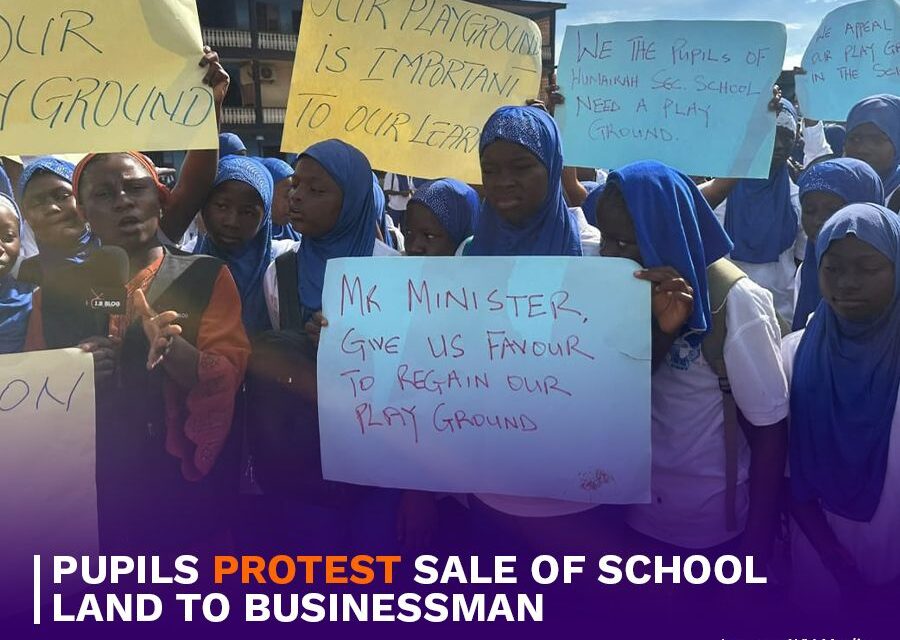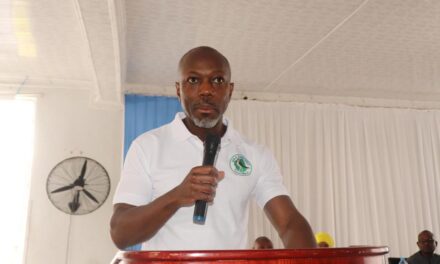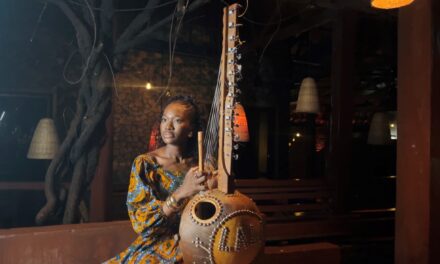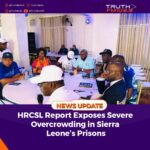By: Andrew Chokpeleh
Freetown, November 19th 2025– A growing wave of concern is sweeping through the East-end of Freetown following the controversial sale of a 3.14-acre parcel of land that has long served as a vital hub for education, healthcare and religious practice. The land, which hosts three schools, a community health centre, a mosque and a vocational institution, was recently sold to Randlyn Holding Limited, a foreign-owned company, for $200,000.
The decision, made by the Ministry of Lands, has sparked intense public debate, with many questioning the rationale behind transferring such a critical community space to private hands. Residents and stakeholders fear the move threatens not only the future of local education but also the well-being of the broader community.
Historically, the land was used as an orientation ground for Muslims preparing for pilgrimage to Mecca. Over time, it evolved into a multi-purpose compound supporting Islamic education and community development. Institutions like Humairah Islamic Secondary School have relied on the grounds for academic, athletic, and religious activities.
“This land is more than soil and grass; it’s our classroom, our sports field, and our prayer ground,” said Mr. Mansaray, principal of Humairah Islamic Secondary School. “Losing it means we’ll have to find alternative spaces for athletics and prayer, which will burden our school financially and affect parents as well.”
The President of the Humairah Islamic Secondary School Old Pupils Association condemned the sale, calling it a direct contradiction to President Bio’s Free Quality Education and Human Capital Development agenda. “This is an abomination against learning institutions,” she said. “We urge the President to intervene and reaffirm his commitment to education.”
Concerns have also been raised about the buyer’s alleged plans to construct a warehouse on the site. Mr. Bangura, an alumnus of the school, warned of the dangers this poses to students. “Heavy machinery and vehicles operating in the same space as children will create a hostile learning environment,” he said.
In a powerful show of resistance, dozens of school children staged a peaceful protest, marching through the community with placards and chants calling on the government to protect their school land. Their message was clear: education must not be sacrificed for commercial development. “We want to learn, not dodge trucks,” one student shouted during the demonstration.
Healthcare professionals are equally alarmed. A nurse at the community health centre expressed fears that warehouse operations could expose patients to harmful pollutants and noise. “We treat pressure patients who need rest. The noise from machines could worsen their condition,” she explained.
While the buyer has reportedly begun renovating the mosque on the compound, many view the gesture with skepticism. Some believe it’s a strategic move to win over religious leaders and soften resistance, even as the schools and health centre face displacement.
Community leader Mr. Bobson voiced a heartfelt appeal to the government: “We’re not here to fight the Ministry. We’re pleading for reconsideration. This land has served generations. Surely, there are other places to build warehouses.”
As the debate intensifies, the community awaits a response from national leadership. For now, the fate of this cherished space and the future of the children who learn there hang in the balance.









